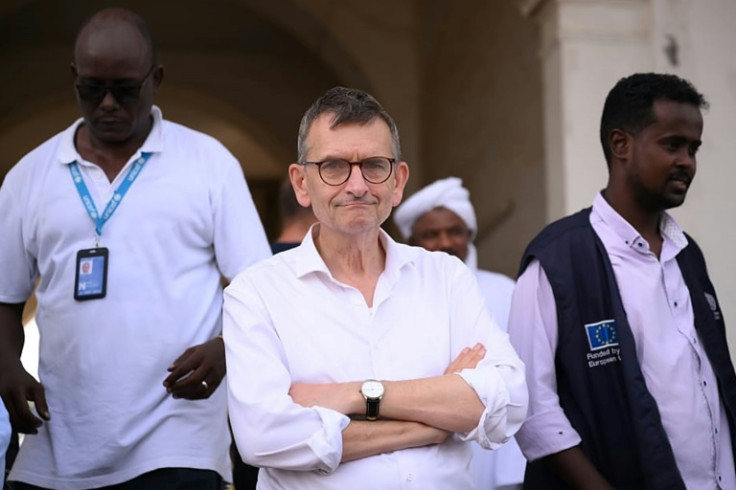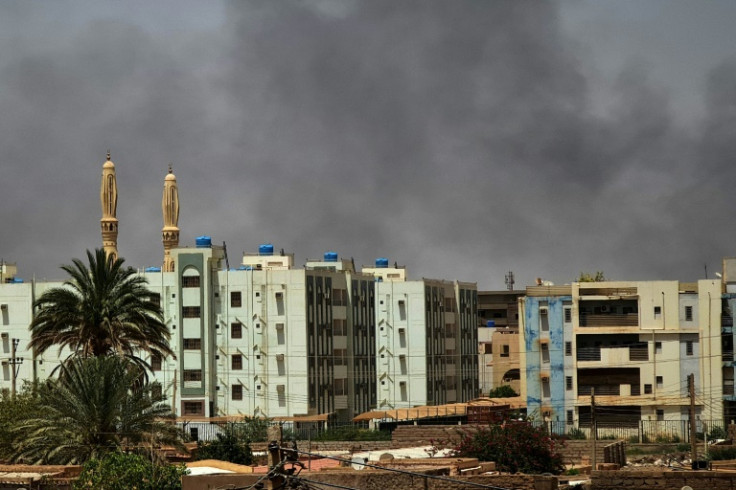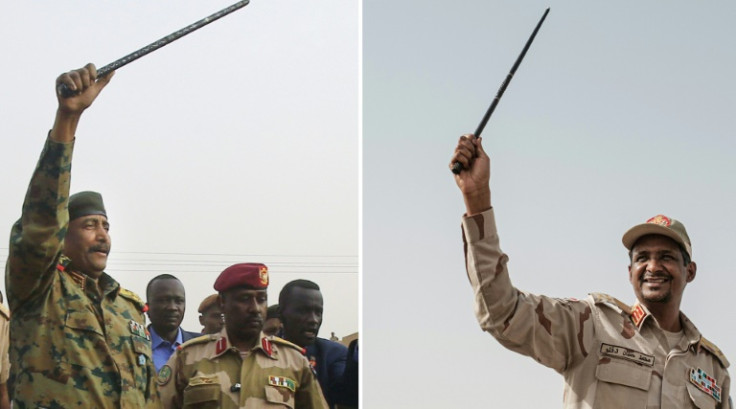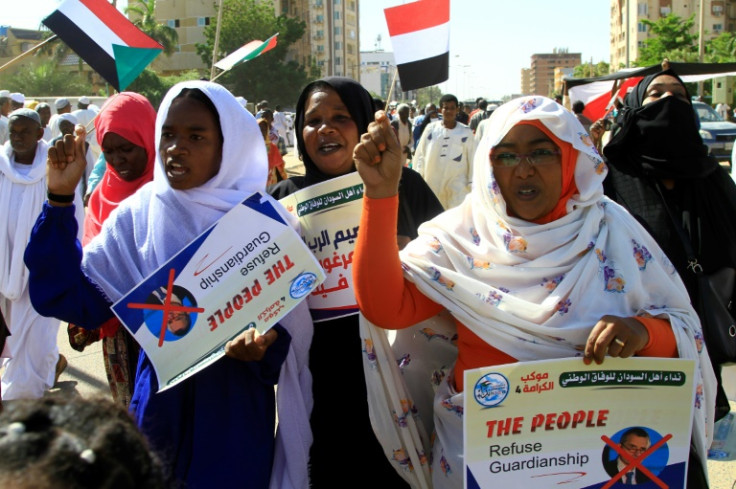Sudanese Army Chief Asks UN To Dismiss Envoy

Sudanese army chief Abdel Fattah al-Burhan has accused UN special envoy Volker Perthes of stoking a brutal conflict with paramilitaries, the latest in a series of apparent moves to bolster his war effort.
United Nations chief Antonio Guterres said he was "shocked" by Burhan's letter, which requested "the nomination of a replacement" to Perthes and accused him of committing "fraud and disinformation" in facilitating a political process which broke down into six weeks of devastating urban warfare.
Burhan and his former deputy Mohamed Hamdan Daglo, who commands the paramilitary Rapid Support Forces, were meant to meet for negotiations facilitated by the UN on April 15, the day they turned Khartoum into a war zone.
The meeting aimed to end a political crisis that has gripped Sudan since 2021, when Burhan and Daglo together seized power in a coup. As their feud worsened, the international community tried to get the intransigent generals to reach a deal on integration of Daglo's RSF into the regular army, part of a deal to restore the transition to civilian rule.
Since late last year Perthes and the UN mission in Sudan, which he heads, have been the target of several protests by thousands of military and Islamist supporters who accused Perthes of "foreign intervention" and demanded his dismissal.
Similar protests have taken place in the eastern city of Port Sudan since the war started.
Perthes had maintained his "optimism" and said he was "taken by surprise" by the war, which has since killed around 1,800 people and uprooted more than 1.3 million.
In the letter, Burhan said Perthes presented a misleading picture "of consensus" in his reports to the UN.
"Without these signs of encouragement, the rebel leader Daglo would not have launched his military operations," said Burhan.
It has never, however, been possible to verify who fired the first shots in the war.
In a statement from UN spokesperson Stephane Dujarric, Guterres said he was "shocked by the letter" and "proud of the work done by Volker Perthes and reaffirms his full confidence in his Special Representative."
The rival forces are currently in the fifth day of a one-week ceasefire brokered by the US and Saudi Arabia. In a joint statement Friday, the mediators "noted improved respect for the agreement" but said there was nevertheless "isolated gunfire in Khartoum".
Burhan last week officially sacked Daglo as his deputy in the ruling Sovereign Council, replacing him with former rebel leader Malik Agar.
After reports of Burhan's letter emerged, Agar said he spoke to Perthes about "ways to resolve the crisis and end the war".
The army is now also seeking to reinforce its ranks.
On Friday the defence ministry called on "army pensioners" and "all those capable of bearing arms" to head to command units and "arm themselves in order to protect themselves," their families and their neighbours.
A statement later in the day revised the call to just army "reservists" and "pensioners".
The RSF called it a "dangerous decision".
The fighting across Sudan has killed more than 1,800 people, according to the Armed Conflict Location and Event Data Project.
The United Nations says more than a million people have been displaced within Sudan, in addition to 319,000 who have fled to neighbouring countries, raising concerns for regional stability.
Perthes is currently in New York, where last Monday he briefed the Security Council on the situation in Sudan. He responded to those who "accuse the UN" by saying those responsible are "the two generals at war".
Sudanese authorities have not issued visas for foreign nationals since the war began, and Perthes "may not be allowed back into Sudan, something he surely knew when he left," according to Sudanese analyst Kholood Khair, founder of Khartoum-based think tank Confluence Advisory.
"His visa will be a litmus test to gauge the resurgence of the Islamists," she wrote on Twitter.
Pro-democracy voices have long accused Burhan of being a Trojan horse for Islamists from the regime of strongman Omar al-Bashir, whom the military ousted in 2019 after mass protests.
Several high-ranking officials from the Bashir era have found roles in Burhan's administration since the coup.
During the fighting Burhan's backing has only grown clearer, including "a web of crony-capitalist corporations, from banks and telecom companies owned by Islamists and intelligence officers to companies owned by the military itself," according to Sudan expert Alex de Waal.
Daglo himself has called Burhan an "Islamist" and a "coup plotter" intent on reviving "the vestiges of the old regime", as opposed to himself and the RSF, who he says are fighting to uphold "democracy" -- something Sudan has known very little of.
Daglo, whose RSF are descendants of the notorious Janjaweed militia unleashed by Bashir in Darfur, has links to gold mines and de Waal has said he has thrived in an environment "where money and guns determine everything."



© Copyright AFP {{Year}}. All rights reserved.





















